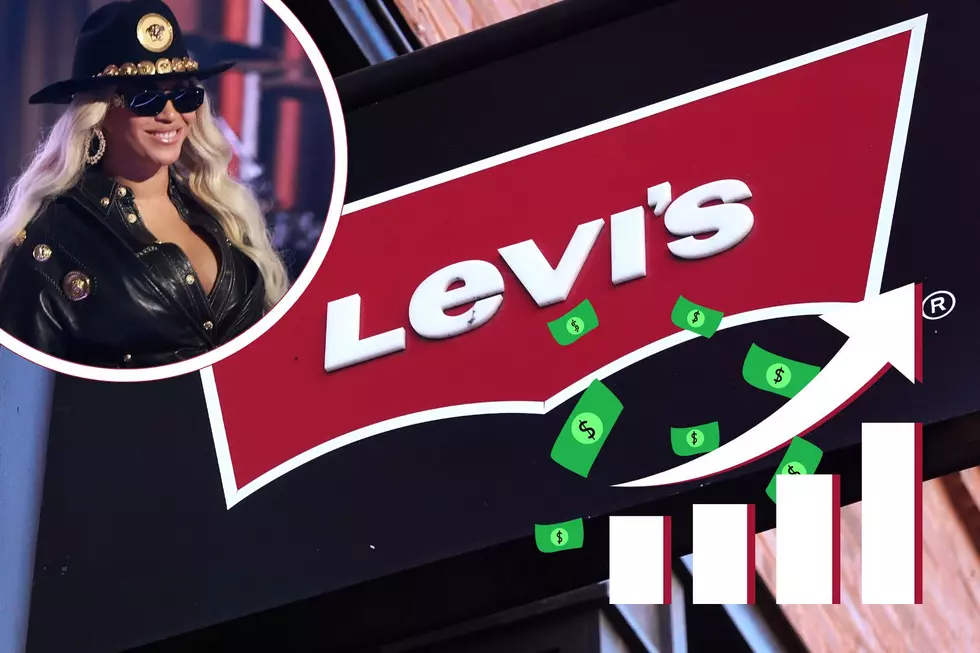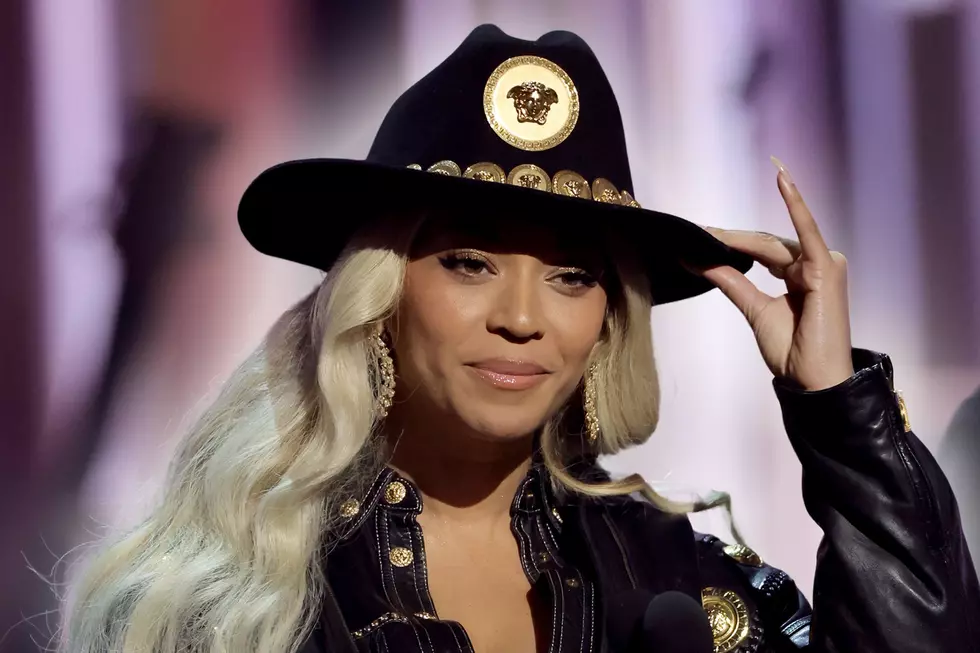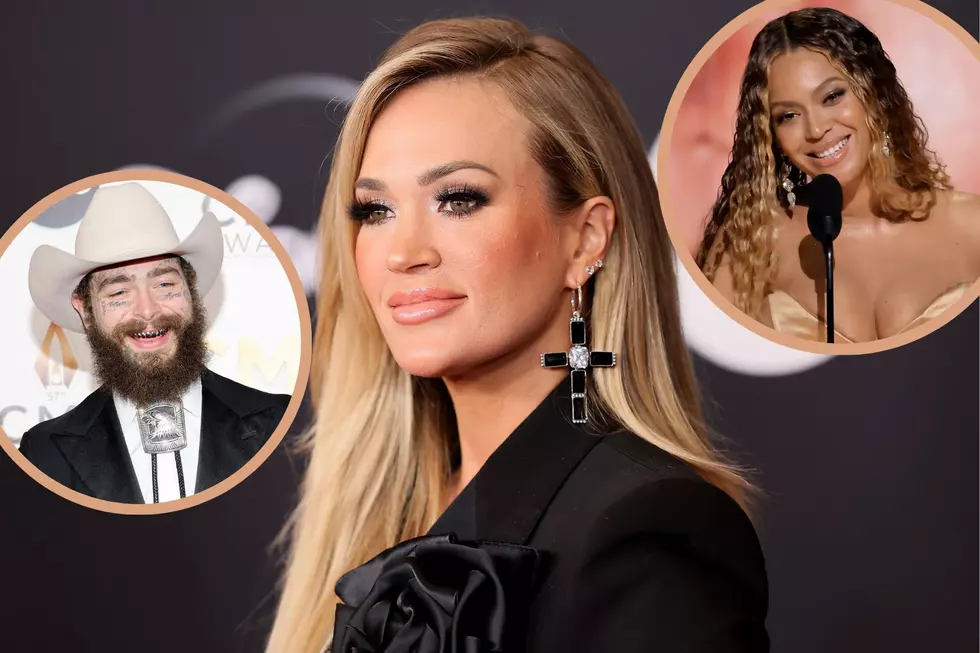
Who Is Linda Martell + Why Is She All Over Beyonce’s ‘Cowboy Carter’ Album?
Linda Martell is a name even many country music fans have not heard — until Friday (March 29), when Beyonce released her much-anticipated new country album, Cowboy Carter.
Martell's name and voice appear in multiple places on the landmark project, which has quite a few fans asking, "Who is Linda Martell, and why does she matter?"
Of course, fans who are really conversant with the history of country music were already well aware of Martell, who is one of the most important Black female pioneers in country music history.
Who Is Linda Martell?
Born Thelma Bynem in South Carolina in 1941, she discovered singing early, and she came by her country influence by listening to the Grand Ole Opry on the radio with her family, as she told Rolling Stone in 2020.
She formed an early vocal pop trio called the Anglos, which then changed to the Angelos, and took the name Linda Martell at the urging of a local disc jockey who had taken an interest in her music. The Angelos recorded several singles for reputable labels before breaking up, just another group that fell by the wayside. But Linda Martell was just getting started.
Martell would go on to become the first commercially successful Black female in country music — but due to the social tenor of the times, her name would be largely forgotten in the ensuing decades.
How Did Linda Martell Become a Country Singer?
Martell came to the attention of Nashville producer Shelby Singleton Jr., who had worked with both Black and white acts including Roger Miller, Dinah Washington and George Jones. He surmised that the audience for country music and R&B were the same working-class people, and when he met with Martell, he suggested that she should make the shift to country music, which she was initially hesitant to do.
Her R&B influences and country music came together for her during the recording of "Color Him Father," a cover of a soul group called the Winstons that Singleton wanted her to put a country spin on.
“Country music tells a story,” she told Rolling Stone. “When you choose a song and you can feel it, that’s what made me feel great about what I was singing. I did a lot of country songs, and I loved every one of them. Because they just tell a story.”
"Color Him Father" ended up reaching No. 22 on the Billboard country charts in 1969, followed by several more country singles. She made the rounds of live shows, TV appearances and even the Grand Ole Opry, where she became the first Black female solo artist to appear, earning two standing ovations, as she recalls.
She would go on to appear there a dozen times, but despite her career successes, Martell faced open racism at every turn during her country career, citing everything from audience members hurling racial epithets at her, to a promoter canceling a show of hers when he found out she was Black. A producer from Hee Haw tried to tell her the "correct" way to pronounce the words to her own song, and Singleton started a new label devoted to country music to release Martell's work — which he named Plantation Records.
Singleton assured the singer there was no intentional racial connotation.
“I said, ‘Yes, there was,’” she remembered. “He said, ‘Of course not.’ I said, ‘Yes. What you are telling me is that Black people belonged on the plantation!’”
Why Is Linda Martell Mostly Forgotten?
Martell's 1970 debut album, Color Me Country, was well-received, but her career began to unravel almost immediately after its release, with Singleton and her manager getting into a financial dispute. Singleton also began to focus more heavily on a white artist, Jeannie C. Riley, whose "Harper Valley PTA" became a smash. As he put more focus on Riley and less on her, Martell decided to leave his label and go record elsewhere.
She says Singleton actively prevented that and blackballed her by threatening to sue other labels she tried to work with ... and just like that, her once-promising country career came to a crashing end, with a handful of singles and one album as the only reminders of that period.
Martell went on to sing on a cruise ship in California. She owned a record store in New York, fronted an R&B cover band and did other odd jobs over the next few decades. Finally, she returned home to South Carolina, where she took a job driving a school bus, which led to a job working with children with disabilities. Since she had reverted to her birth name, most of the people in her day-to-day life had no idea she had once been a successful singer.
Where Is Linda Martell Now?
Martell is now 82, and in recent years, she's been the focus of a resurgence in interest. Rissi Palmer referenced her biggest hit when she started her Color Me Country podcast in 2020, and Martell received the Equal Play Award at the 2021 CMT Music Awards, in recognition of her groundbreaking work as a Black female in country music.
Martell appears on Beyonce's Cowboy Carter on two tracks: "The Linda Martell Show" and "Spaghetti." She delivers voiceovers on those tracks:
For Beyonce, it's a way to honor one of country music's unsung pioneers and to tie her struggles to her own difficulties in breaking into country music; she has openly acknowledged that she "did not feel welcomed" after her initial foray into the genre, when she performed with the Chicks at the 2016 CMA Awards. She faced intense backlash online after the performance, in a sad mirror to the racist reactions that were common to Martell during her career decades earlier.
Martell is not the only country legend on Cowboy Carter; Willie Nelson and Dolly Parton also make appearances, along with Miley Cyrus, Post Malone and more.
Quia Tarantino has launched a GoFundMe to raise the funds for a documentary about Martell called Bad Case of the Country Blues, which seeks to help the groundbreaking singer "own her story." For more details, visit Martell's website.
Beyonce, 'Cowboy Carter' Album: 16 Things You Need to Know
Gallery Credit: Billy Dukes
More From Taste of Country
![Hank Williams Covers Beyonce’s ‘Texas Hold ‘Em,’ Thanks to AI [Listen]](http://townsquare.media/site/204/files/2024/04/attachment-Untitled-design-2024-04-10T083855.961.jpg?w=980&q=75)




![2024 iHeartRadio Music Awards Red Carpet Was No Place for the Timid [Pictures]](http://townsquare.media/site/204/files/2024/04/attachment-iHeart-Radio-Red-Carpet-Pics.jpg?w=980&q=75)



